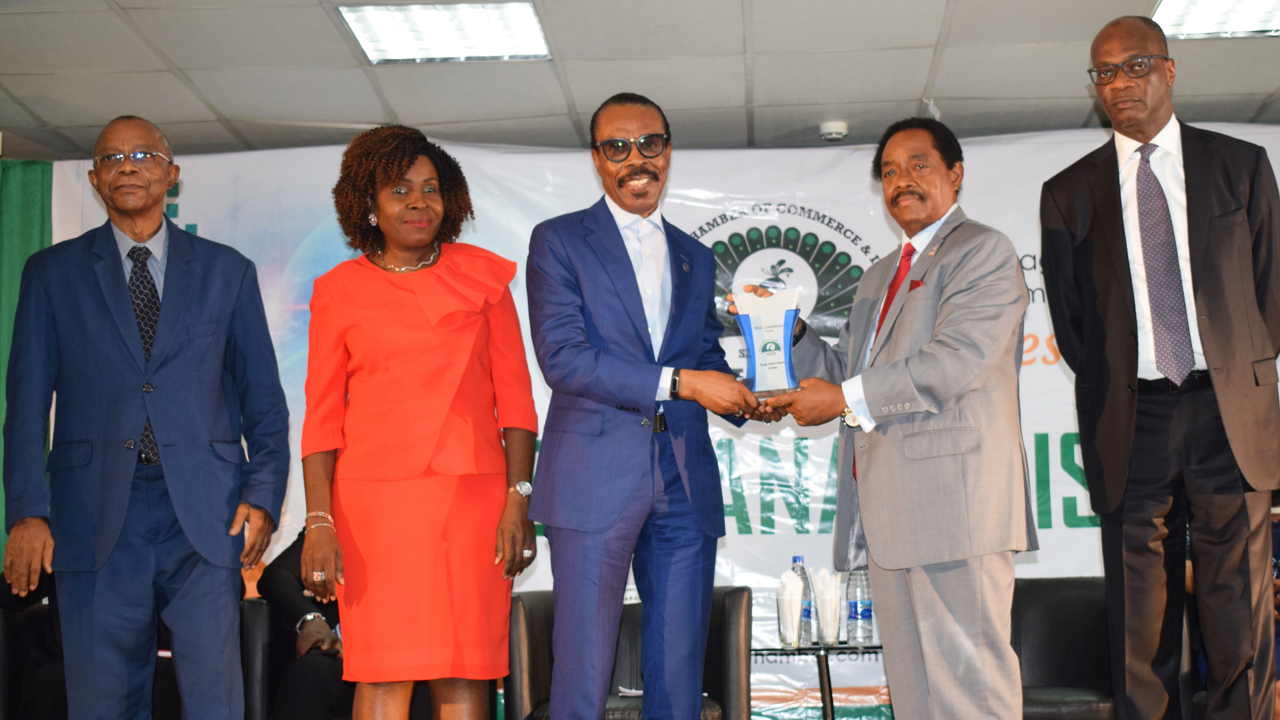
The president, LCCI, Dr Michael Olawale-Cole, stated that the advice is apt and coming on the heels of the proposed plan of the Federal Government to borrow loans to fund the 2022 budget.
Olawale-Cole stated this on the sidelines of its budget analysis session tagged “Budget analysis for business intelligence: What the figures and policy statements mean for business” in Lagos.
The LCCI boss further advised the Federal Government to focus its attention on other areas to raise funds to implement the budget rather than over-burdening the private sector with additional taxes.
In his words, “The federal government should look at other areas of raising funds to implement the budget and of course tax is a must for everyone, but at the same time, we should not put too much pressure on the private sector in the area of raising revenue. We are appealing that the federal government should expand the tax net against putting pressure on the very compliant taxpayers.
“There are also funds that can be borrowed from outside at lower interest rates and even from within as against taking bonds or loans that are very expensive which would put a lot of pressure on our cost as a nation and on interest rates and in the long run make Nigeria be debt-heavy. These are issues we must try to avoid. While there is nothing wrong in taking loans, the loans must be commensurate with the capacity to repay in the long run and not pass on the burden to future governments and generations.”
According to him, the Federal Government plans to spend the sum of N17.13 trillion in 2022, which represents an 18-per cent increase from the sum of N13.59 trillion planned for 2021, saying that the budget size reaffirms the commitment of the government to pursuing an expansionary fiscal policy to stabilize growth and deepen the diversification of the Nigerian economy.
He said the aggregate of the government’s expenditure plan showed that recurrent (non-debt) spending, is estimated at N6.91trillion, which is 40 per cent of total expenditure, and 20 per cent higher than the 2021 budget.
He pointed out that the government needs to watch the rising recurrent (especially personnel) expenditure, which he said, is more sustainable to empower the private sector to create jobs while the government creates a thriving business environment.
He noted that the revenue and capital expenditure performance of the 2021 budget indicates the fiscal resilience of the Nigerian economy.
“This should be consolidated for better outcomes in the 2022 fiscal year. A higher non-oil revenue projection in comparison to oil revenue if effectively implemented and actualized will minimize the impact of external shocks, arising from oil volatility, on the economy,” he added.
On his part, the Chief Executive Officer of Financial Derivatives Company Limited, Mr. Bismarck Rewane, said deficit spending has not yielded the intended impact on the economy, maintaining that fiscal spending is currently not complemented with adequate local and foreign investments.
He stated the need to address Nigeria’s fiscal challenges by increasing injections through quality investments in productive sectors, fiscal consolidation and diversification of revenue base.
He also stated the need to reduce leakages through accountability, transparency in public finance and elimination of subsidies.
He stated that economic performance will be largely determined by the successful implementation of the 2022 budget, stressing that the 2022 budget is an offspring of the federal government’s development plan.
Rewane stated that the sectors to watch out for in 2022 include Information Communication and Technology, agriculture, financial services, transport and construction, manufacturing and trade.
The Director-General, Budget Office of the Federal Republic of Nigeria, Ben Akabueze, said growing the revenue base of the nation is the only way to fund the nation’s 2022 budget.
The president of, Institute of Chartered Accountants of Nigeria (ICAN), Mrs. Comfort Olu Eyitayo, said the deficit to fund the budget is a source of concern, warning that Nigeria’s high debt profile will only deplete the nation’s foreign reserve and worsen foreign exchange rates.
Representing the president, Manufacturers Association of Nigeria (MAN), Mansur Ahmed, the Director, JMG Limited, Mesioye Francis, urged the federal government to invest in tools and equipment that would do more with less resources.
He said access to finance is still a major challenge to the nation’s real sector of the economy while also adding that the federal government’s backward integration plan is still not effective enough to discourage importation.
He however stated that provisions have been made in the budget for subsidy payment only for 2022, adding that provisions have also been made for the power sector reform programme to facilitate cost-reflective tariff.



